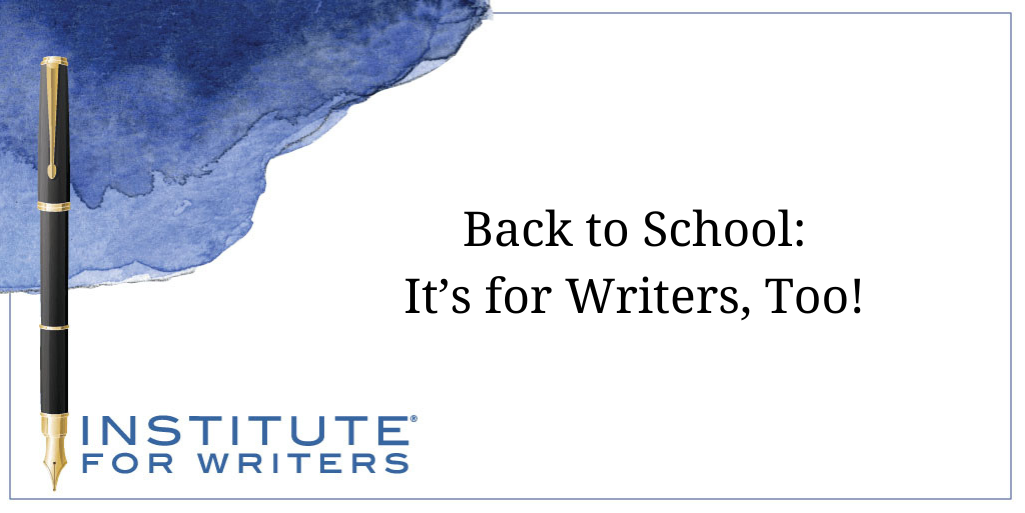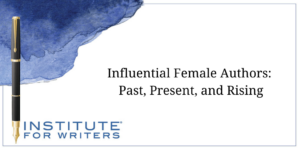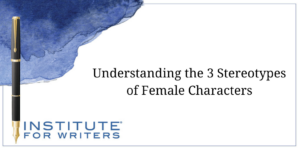
The Layers of Revision
To many, writing is revision, and most writers revise their manuscripts numerous times before they’ve shaped it into the best version that it can be.


Writers, including experienced authors, never stop learning. We can always discover more about both the craft and business of writing. Although most of us no longer attend school full-time, we can create our own learning experiences to become better writers. Here are ways to go back to school for writers.
Many writers recall the pleasures of buying new school supplies each year and finding that perfect backpack, notebooks, folders, a colorful eraser, fresh pencils, and pens. What supplies or equipment could improve your skills and productivity? What might motivate you and energize your writing? If you still write by hand (at least some of the time), your supplies might include new notebooks, a binder in a favorite color, fresh pencils, and good quality pens. Such items can signal our brains that it’s time to study and learn.
If hot beverages are part of your writing routine, how about a mug with a literary theme? Maybe you could use a new desk organizer or bookshelf? Accessories can inspire. On my desk are a ceramic pencil holder with the word “WRITE” and a small bronze owl one of my children gave me.
School days mean showing up on time and following a schedule and routines for learning. When can you study and write? If you’ve been getting up later during the summer, set your alarm for an earlier start. Writers with school-age children will be getting up earlier anyway. Decide which hours and days you will devote to studying as well as actual writing. Mark them on your calendar or computer. Then do it—this is your “golden rule” time to improve your writing.
 A Place for Learning
A Place for LearningIf you have a room, or part of a room, just for writing, that same area can be your classroom. You can make a fresh start for the “school year” by cleaning your table or desk and organizing your writing materials, including computer files. Your classroom(s) can also be outside the house. Some writers go to “class” at the library. One of my students spends two hours three times a week at a quiet table in the library working on her lessons and studying magazines she would like to write for. Another writer set up his study materials on a table in a different room than the room where he works at his desk for writing. When he sits at that table, he is “in school.”
Your “homework” assignments will depend on the curriculum you’ve chosen. If you are taking a structured writing course, such as those at IFW, you will automatically have specific assignments and writing exercises designed to build skills in different areas of fiction and/or nonfiction writing.
If you develop your own curriculum, your homework might include reading books on specific writing skills and doing the exercises you find in those books or in writing publications. You could also study books and magazines that contain the type of writing you want to do. If you don’t own such books, you can buy them or borrow them from the library. As a student, you can take notes so you can review what you are learning.
Your study plan will depend on where you want to go as a writer. If you enroll in a ready-made course, you will study the materials for that course, along with others your instructor recommends. If you are studying on your own, you’ll design a curriculum to suit your writing goals and needs. (For more details, stay tuned for the next blog: Back to School for Writers, Part II.)
School means showing up to reach goals and complete projects. That kind of accountability can keep us moving forward, both with learning and writing. We can create accountability by taking a course or working with writers’ groups, writing partners, or critique partners. My students in IFW writing courses say accountability is a big benefit. They have made a commitment to learn and want to get the most from their course materials and lessons. Being accountable can also motivate us to do our best work. (We don’t want to go to the back of the class, right?) You won’t need the proverbial “hickory stick,” but maybe a carrot stick is in order, so reward yourself when you complete new assignments, read a book, or finish a “study unit.”
It’s natural to wonder how we are progressing. In school, we received feedback from teachers in the form of comments, grades on our work, progress reports, and report cards. Writers often have to reach out for feedback.
These days, feedback from editors is rare, unless we have an ongoing relationship with them. A rejection often consists of a form letter or no response at all. If an editor does take time to give feedback with a rejection, learn from that.
We can make our own opportunities for feedback. Find readers who will give honest comments on our work, or join a critique group, workshop, or writing course.
Besides feedback, a writing course offers other benefits of the back-to-school experience: structured learning, a specific curriculum for building skills, “homework” for study and writing practice, accountability in completing assignments, and support for learning and growth. Students in my IFW writing courses say they appreciate the one-on-one instruction that focuses on their goals, writing interests, strengths, and areas they want to improve.
Remember the excitement of opening new books, listening to an inspiring teacher, and learning new things you can really use? Try to recapture that anticipation and energy as you head “back to school” with your writing. Unlike some of your previous school experiences, you are choosing this learning experience for yourself. Get ready to learn and enjoy the process!
Victoria Sherrow loves to learn and strives to become a better writer and a better teacher each year. She has published short stories, articles, and books (fiction and nonfiction) for readers aged preschool through adult. Her books have received starred reviews and been honored by the American Library Association, Parents Choice Gold Award, National Association for the Advancement of Science, and NYPL Best Books for the Teenage, among others. Victoria has taught writing for more than 25 years and has also been an assistant editor and writing contest judge. She says, “One of the joys of writing is that we can learn something new with everything we write.”

To many, writing is revision, and most writers revise their manuscripts numerous times before they’ve shaped it into the best version that it can be.

We’re going to look at influential female authors of the past, those impacting the present, and whom the industry expects to make a big splash.

This week, we’re focusing on how we as writers can create strong female characters that others will look up to, instead of harmful stereotypes.
1000 N. West Street #1200, Wilmington, DE 19801
© 2024 Direct Learning Systems, Inc. All rights reserved.

1000 N. West Street #1200, Wilmington, DE 19801
© 2025 Direct Learning Systems, Inc. All rights reserved.

1000 N. West Street #1200, Wilmington, DE 19801
©2025 Direct Learning Systems, Inc. All rights reserved. Privacy Policy.
4 Comments